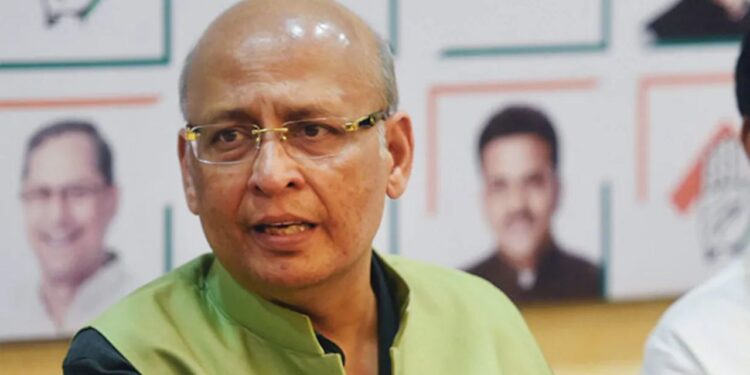Senior Advocate Abhishek Manu Singhvi has praised the Supreme Court Collegium’s recent steps to reform the process of judicial appointments to India’s Constitutional courts, describing them as timely and essential for maintaining institutional credibility.
The Collegium, led by Chief Justice of India (CJI) Sanjiv Khanna, has reportedly resolved to reject the appointment of close relatives of serving or retired judges as High Court judges. This move is aimed at curbing nepotism and enhancing transparency in the judiciary. The Collegium has also started engaging directly with candidates recommended for elevation by High Courts, marking a significant shift in its approach.
In a tweet, Singhvi called these proposals “radical but necessary” and urged for their swift implementation.
He highlighted longstanding issues in the judicial appointment process, including favoritism, nepotism, and the dominance of family legacies. “The reality of judicial appointments is far more non-objective than originally envisioned. Practices like mutual back-scratching and the perpetuation of ‘uncle judges’ undermine the morale of deserving candidates and erode public trust in the institution,” Singhvi stated.
He also acknowledged the difficulty of reforming entrenched systems, pointing out that even banning lawyers related to judges from practicing in the same High Court has faced resistance.
Reflecting on his earlier recommendations, Singhvi proposed that Collegium judges observe candidates’ courtroom performances anonymously before making decisions on their elevation. “I suggested decades ago that Collegium judges should disguise themselves and watch potential appointees—judges and lawyers—perform in court. This approach would offer firsthand insight into their competence, akin to ancient rulers who secretly mingled with their subjects to understand ground realities,” he said.
Singhvi welcomed the Collegium’s decision to conduct interviews with candidates, describing it as a “second-best option” compared to his suggestion of surprise evaluations. He emphasized that such interactions would help bridge the gap between candidates’ CVs and their actual abilities. “Many would be shocked at the difference between what’s on paper and how candidates perform in court. While interviews aren’t perfect, they represent a significant improvement over the existing system,” he noted.
The current Collegium comprises CJI Khanna, and Justices BR Gavai, Surya Kant, Hrishikesh Roy, and Abhay S. Oka. Singhvi’s comments underscore the need for sustained efforts to modernize and improve the judicial appointment process, ensuring merit and transparency take precedence over personal connections.

















